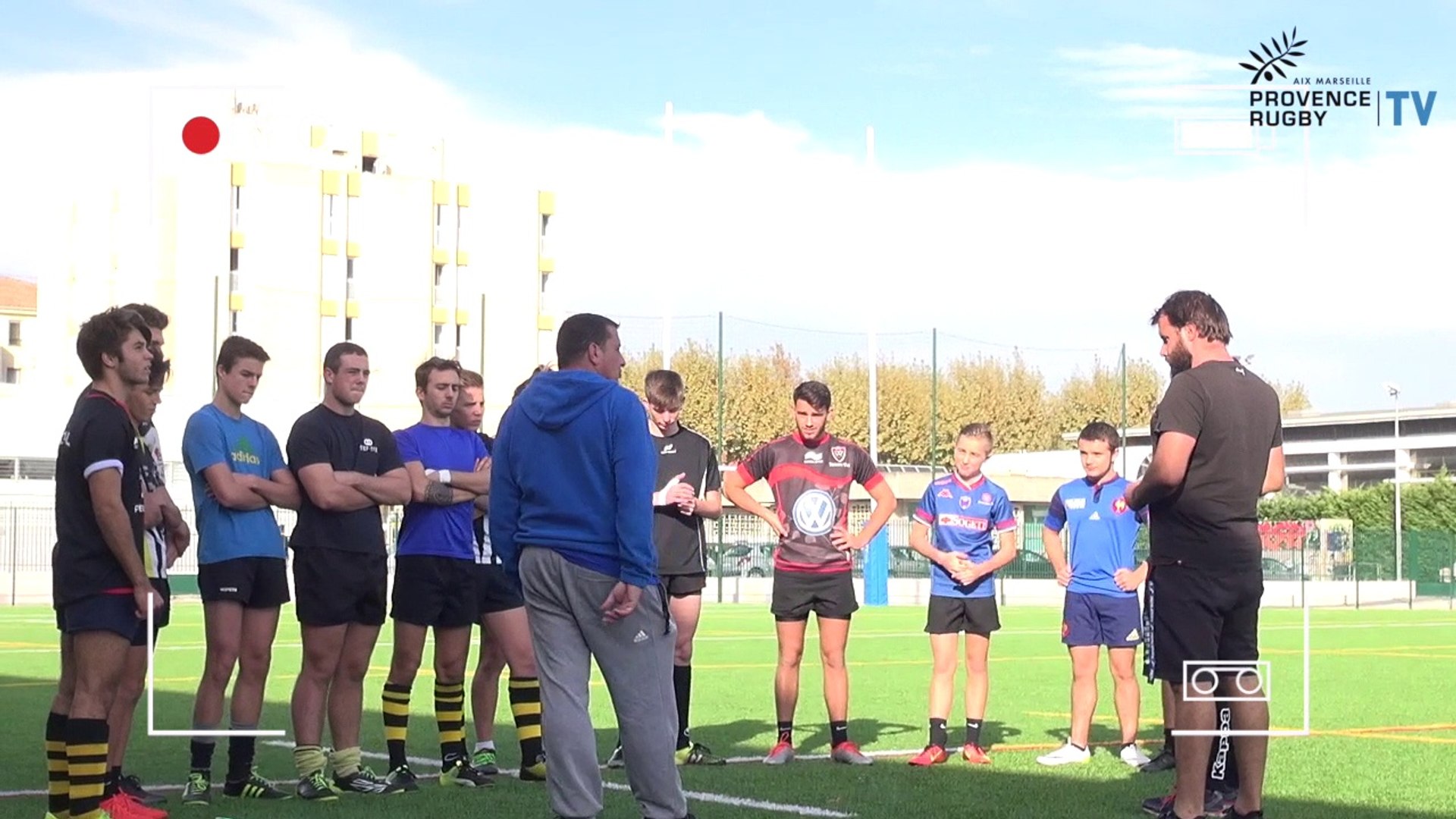
During the mid-20th century the concept of a world cup for rugby was conceived many times. In 1984, the International Rugby Board (IRFB), conducted a feasibility study. Australia was the first to propose the tournament. Two proposals were rejected by the IRFB, but the idea was revived in 1980. In 2009, the International Olympic Committee (IOC), voted to include rugby at the Olympic Games. In 1988, England and Scotland played their first rugby match. The tournament was also held in Japan the year after, making Japan the first Asian team to host it. The tournament was also the first time that all matches were played on a single country's ground.
The International Rugby Board voted on the concept for a world cup. It was approved by 10-6 votes. Two proposals were rejected. The IRFB however, was convinced by the merits and approved a world-cup proposal in 1985. Initial competition was limited to 16 nations. Later, it was increased to 20. New Zealand won four Rugby World Cups in the tournament. The All Blacks not only won the tournament but also became the first team three times to win it and the first to defend it.

England and New Zealand had been beaten home and away for the past year. England was expected to win the tournament. They did not make it to the Quarter Finals. Wales, however, were eliminated in their Semi-Final match. Australia lost to England in the final. Elton Flatley kicked the penalty. Chris Wilkinson scored the drop-goal to win, as the clock was running out. It was a momentous moment in the sport's history.
After the initial IRFB ruling, the idea of a World Cup was revived. To plan it, the IRFB consulted all its member unions. The idea was ruled out because the IRFB does not want its member unions competing in the World Championships.
The International Rugby Board began a feasibility analysis of the idea in December 1984. This study was aimed at determining the cost, timetable and logistical requirements of holding a world cup. South African delegates were also consulted by the IRFB about the potential for a world cup. South Africa's apartheid dictatorship had forbid international sports. The IRFB only allowed South Africa to compete after the end apartheid.
New Zealand was the dominant force at Rugby World Cups during the tournament. They were expected to win the tournament for the fourth time. They were also able to win the tournament in 1999 and 1996, adding to their success.

England failed to advance past the pool phase in 1991, and was eliminated in 1999 in the Semi-Finals. England was expected to defeat the Springboks at the final of the 2003 tournament. In the final twenty seconds of the match, the Wallabies reclaimed a 20-0 lead to win.
FAQ
What is extreme sport?
Extreme sports are skydiving.
They are popular because they provide adrenaline-pumping thrills that don't involve any danger.
These extreme sports are often viewed as more fun than dangerous.
Skiing is the most well-known extreme sport. Skiing has been around thousands of year, but skiing was only a prominent form of winter recreation in the 1900s.
With more than 4,000,000 new skiers each year, skiing is one of the fastest-growing sports in the world.
How long does it take to learn how to ski or snowboard?
You might not be ready to learn how snowboarding is done right away.
The average person begins learning around five years of age. Some children start to practice when they are only two years old.
Is extreme sport dangerous?
Extreme sports are dangerous, as they can lead to injury and even death. There have been numerous deaths from other causes like drownings, car accidents, electrocution, and drowning.
Even though you are riding a bike, rollerblading or doing other safe activities, accidents can occur.
Some people avoid extreme sports because they fear injury.
For example, the National Football League prohibits its players from participating in certain extreme sports (like skateboarding) because of the high risks associated with those sports.
Do not attempt extreme sports without first ensuring that you and your friends are safe.
How does an extreme sport differ from regular sports?
Extreme sports involve physical exertion and/or skill mixed with a challenge.
It may also involve using equipment such as helmets, goggles, or unique clothing.
Extreme sports are not like traditional sports that require training. They test your ability to perform under stress.
They usually take place outdoors and offer no safety net if things go wrong.
Some extreme activities are illegal while others can be legal. It all depends on where and what type activities you're involved.
You need to verify the local laws if you plan on doing extreme sports.
What makes a sport extreme?
Sports have been around since ancient times. They've evolved to be more than just competitions for athletes. Some sports have become part and parcel of our culture.
Some sports are considered extreme because of their high level of competition. Pro basketball players, for example, play against one another almost every day for many hours. Other sports are more extreme as they require special equipment. Snowboarding, for instance, is riding down hills on boards that have two wheels attached to their bottoms.
Other sports are considered extreme because the rules are different from other sports. For example, soccer is played differently than American football.
Some sports are extreme because they require their athletes to do feats such as gymnastics. Gymnastics can be difficult, as athletes must balance on many objects while keeping their balance.
Is it an extreme sport to play football?
It depends on who you ask. It is a game that millions have played for thousands of decades all over the globe. Many argue that it is not a game but an entertainment. Others believe it is as good a sport as any. Others believe that it is the ultimate game.
Truth lies somewhere between these extremes.
Football is an extreme sport; however, it is also a game that requires skill, teamwork, strategy, endurance, speed, strength, stamina, power, tactics, sportsmanship, and luck.
What could go wrong in extreme sports?
Exercising in extreme sports could lead to many different situations. From falling off cliffs, getting injured, or being caught by the press.
It is possible to avoid these problems by being aware of them and taking precautions.
You just need to make sure that you have the right equipment and know how to use it properly.
There will always be someone to assist you if you get hurt while doing extreme sport. Medical attention will be given to anyone who is injured.
Sometimes injuries can happen without warning. Sometimes, poor judgement can cause injuries.
To illustrate, if you climb too close to the edge of a cliff, you might slip on the side. Or if you jump into icy water, you might suffer hypothermia.
Other times, accidents occur because of mistakes made by others. In some cases, injury can be caused by others.
And sometimes, accidents occur because of bad luck. For instance, you might land on a rock when you are falling. You might also be struck with lightning.
What makes extreme sports so popular?
Extreme sports pose a great danger. They can also provide adrenaline-pumping thrills, and a sense achievement.
Extreme sports are very expensive as well as time-consuming. However, they are accessible to those who otherwise would not have been able to do them.
Many people love extreme sports because of these reasons. You might want to think twice before you decide to try one.
Statistics
- Landscaping and grounds-keeping— according to government labor statistics, about 18 out of 100,000 workers in the landscaping industry are killed on the job each year. (rosenfeldinjurylawyers.com)
- Nearly 30% of all boardsailors live in the South, and more than 55% of all boardsailors live in cities with a population of more than two million people (momsteam.com)
- Overall participation has grown by more than 60% since 1998 - from 5.9 million in 1998 to 9.6 million in 2004 Artificial Wall Climbing. (momsteam.com)
- Nearly 98% of all "frequent" roller hockey participants (those who play 25+ days/year) are male. (momsteam.com)
- Boxing— 90% of boxers suffer brain damage over their careers, and this is not surprising in the least, considering that they are throwing punches at each other's heads. (rosenfeldinjurylawyers.com)
External Links
How To
How do I learn how to skateboard?
Skating is a sport in which you use your feet for movement on ice and snow. This can be done by you or your friends. It requires coordination and balance. First, you must learn how to stand on the board. Next, practice balance while moving forward or backward. Finally, try jumping off ramps or stairs. These skills will allow you to skate faster and further than ever before.
Here are some tips to help you get started in skating.
-
It is important to determine the type of skates that you are looking for. There are many kinds of skates to choose from, including inline skates (roller blades), speed skates (speed skates), figure skates, and others. You should choose the right type of skates based on your level. If you are just starting out with skating, inline, roller, or speed skates will work well. Figure skaters often prefer to wear boots that offer support during the performance.
-
Buy proper equipment. Your preference in gear depends on whether your goal is to compete or just skate around the park. Make sure your skates are comfortable, fit well, have excellent stability, and are made from durable materials if you plan on competing.
-
Learn new skills. It is important to practice any skill. Don't wait to master a skill before you try it. Instead, learn simple moves such as walking backwards, sliding sideways, spinning and so on. This will help you not feel intimidated when you try harder maneuvers.
-
Keep learning. Don't expect to become skilled overnight. Skaters who are the best spend many years perfecting their skills. They never stop improving. Keep in mind that there are many techniques you can use to improve. You can take lessons at your local rink or join a recreational league. You can also watch videos online and attend workshops.
-
Be patient. Do not worry if you are still having difficulty mastering a complicated maneuver. Just keep practicing. You will eventually gain the confidence necessary to perform advanced stunts.
-
Have fun. Skating, which doesn't require special equipment or any training, is a great sport for beginners. It's also a lot fun!